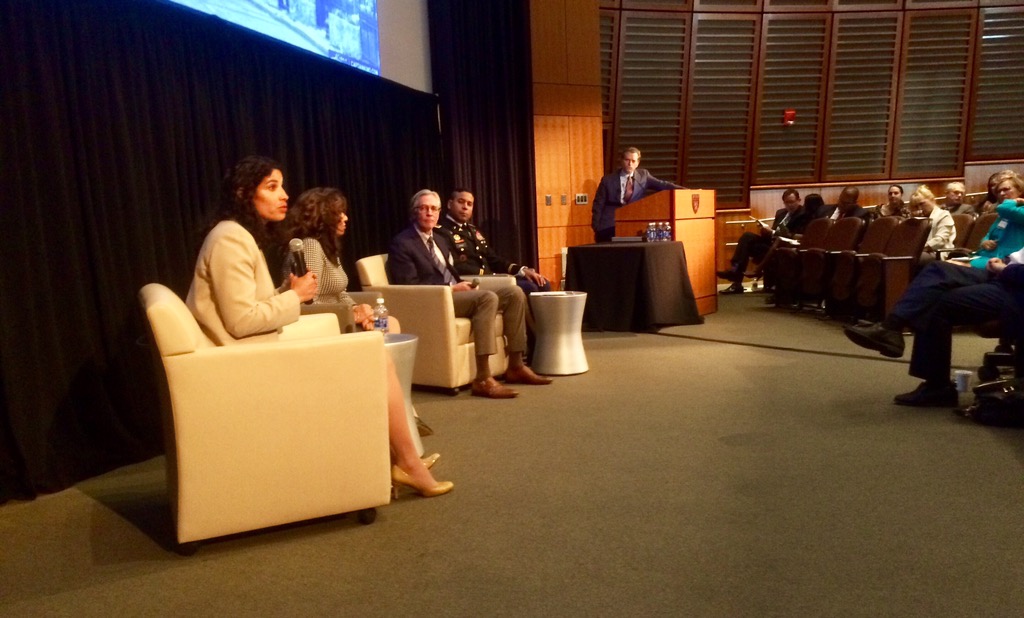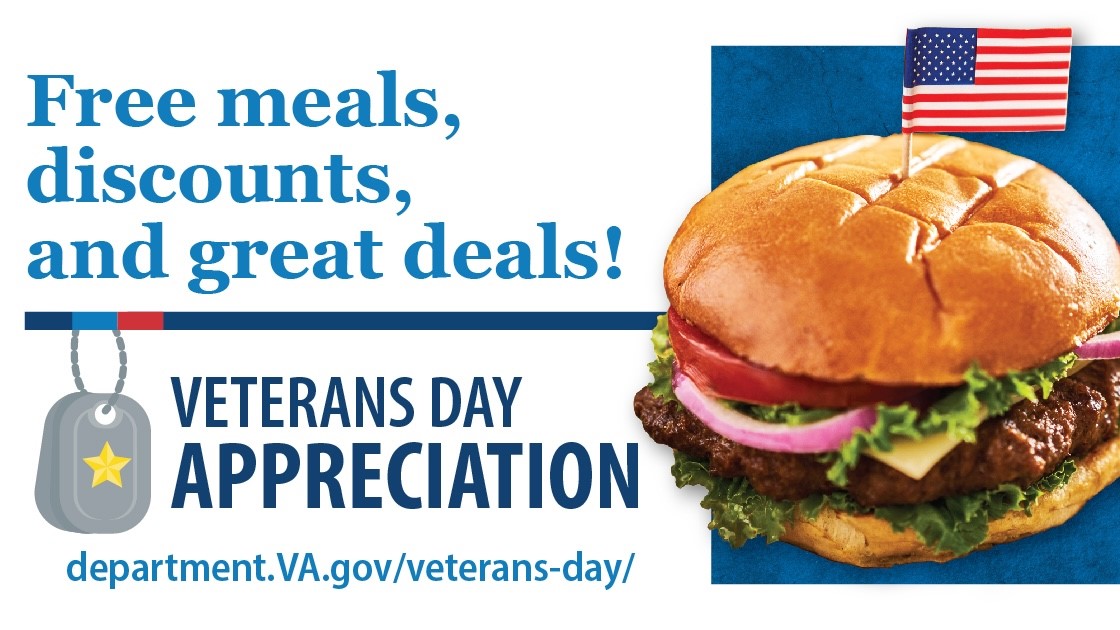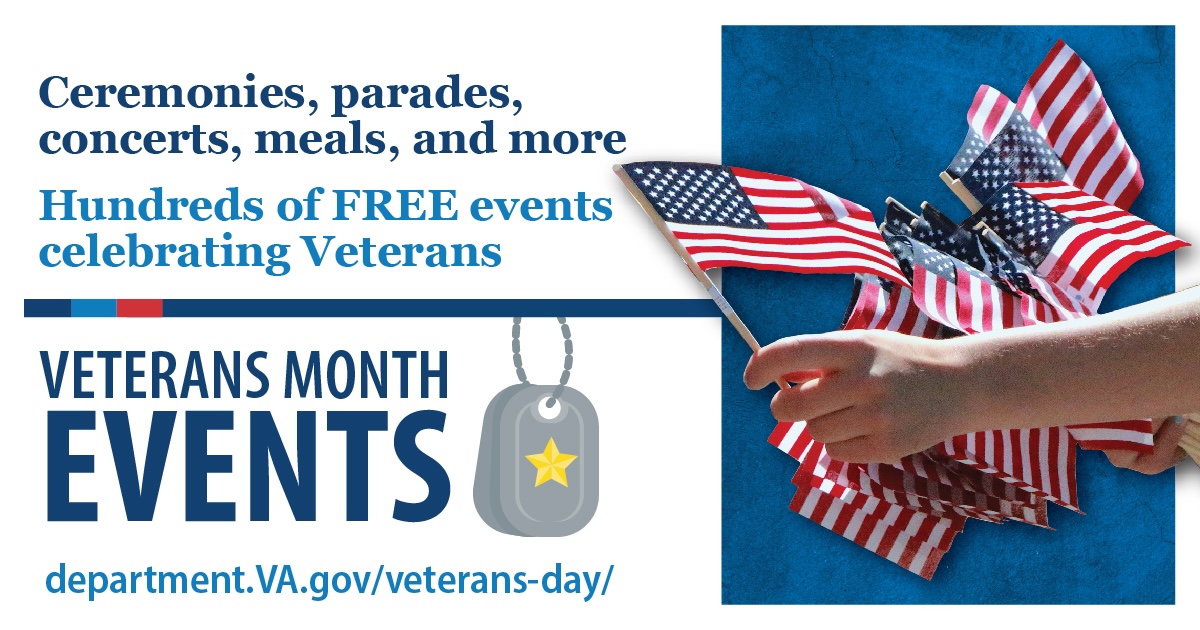Designed to promote forward-thinking dialogue and innovative collaboration among private industry as well as national professional sports organizations around the issue of brain health, the VA is hosting its second annual Brain Trust: Pathways to InnoVAtion summit, which kicked off today at Harvard University.
With more than 350 invited attendees, the event gathered federal government, innovators, scientists, athletes, clinicians, caregivers and Veterans to advance discussions and improve the prevention, diagnosis, treatment and recovery for those who suffer from head trauma.
Traumatic brain injury (TBI) is often regarded as one of the signature injuries among Veterans of combat in Iraq and Afghanistan. According to the Chronic Effects of Neurotrauma Consortium, of the more than 2.5 million service members who deployed to Iraq since 2003, almost 20 percent have had at least one TBI. However, issues related to brain health and head trauma transcend the Veteran and military community, impacting all Americans, particularly athletes participating in youth and major league sports.
“Brain Trust has inspired a new approach to collaborative partnerships across VA,” said VA Secretary Dr. David J. Shulkin, who welcomed participants to the event. “While VA is uniquely positioned to contribute to the care of Veterans with traumatic brain injury, we’re able to accomplish so much more when we work strategically with our private and public sector partners. We look forward to working with our partners to improve care for Veterans — as well as all Americans — affected by brain-related injuries.”
VA officials announced the following key partnerships during Brain Trust:
- Amazon: Amazon is teaming up with VA to extend the use of digital devices to help improve the lives of Veterans with disabilities. Through this collaboration, Amazon will donate 100 Amazon Echo devices with Alexa Voice Service units to VA’s Assistive Technology Labs. Amazon staff will also collaborate with VA experts to ensure Echo devices are programmed specifically to meet the needs of Veterans. Beyond the Echo donation, Amazon will also collaborate with VA staff to expand the accessibility of Kindle reading programs to Veterans and families staying at VA Fisher Houses.
- Cohen Veterans Bioscience (CVB): VA is partnering with CVB to address the challenge of advancing diagnostics for PTSD and TBI by joining the Research Alliance for PTSD/TBI Innovation and Discovery Diagnosis (RAPID-Dx). This public-private partnership alliance led by CVB will enable different institutions to coordinate efforts and integrate data across dozens of labs to facilitate breakthroughs. The goal is to fast-track discovery and development of biomarkers and diagnostics to advance precision medicine for trauma-related disorders.
- National Institutes of Health (NIH): NIH and VA will co-host a State of the Science Workshop dedicated to Chronic Traumatic Encephalopathy (CTE) and other neurodegenerative diseases in 2018. Both departments will convene a committee to review the growing body of research and literature related to repetitive head trauma. The workshop will culminate in a written “State of the Science” statement to guide future research on the issue of head trauma.
Additionally, Dr. Chris Nowinski, co-founder of the Concussion Legacy Foundation (CLF), announced that professional athletes, former NY Giants’ player Leonard Marshall and Seattle Seahawks’ Player (current ESPN announcer) Matt Hasselbeck pledged to donate their brains to the VA-Boston University-CLF Brain Bank for the purposes of advancing brain health. Directed by Dr. Ann McKee, chief of neuropathology at VA’s Boston Healthcare System, the VA-BU-CLF Brain Bank is now the largest sports mTBI and chronic traumatic encephalopathy (CTE) repository in the world, with more than 325 brains donated and over a thousand more pledged.
VA’s partners for the annual Brain Trust event include: Amazon, Booz Allen Hamilton, Cohen Veterans Bioscience, Comcast, Concussion Legacy Foundation, GE, IBM, Infinite Hero Foundation, Johnson & Johnson, Optum Health, Outward Bound, PenFed Foundation, Philips and the Warrior Care Network.
Brain Trust is a public-private partnership event coordinated by VA’s Center for Strategic Partnerships.
During the event you can follow the conversation online using #VABrainTrust or watch live — click here for the live stream feed.
Topics in this story
More Stories
This 2024 Veterans Day discounts list will continue to be updated as we learn of more nationally available Veterans Day discounts, meals or other ways businesses and organizations want to give back to Veterans.
Here are instructions on the ways to renew your Veteran Health Identification Card.
November marks National Veteran and Military Families Month, highlighted by Veterans Day on Monday, Nov. 11. This list of Veterans Day and Veterans Month events is organized by state and will be continuously updated with more events throughout the month.







This article BARELY Mentions PTSD! Why is that?
I suffer greatly from PTSD and I am 67 years old with no way to get help!
VAMCs are under pressure to CUT IN HALF the service window – from 90 days (with the possibility of extension based on veteran’s need) to 45 days (NO extensions possible) – for intensive inpatient, or “DOM” (domiliciary) programs. These are typically for PTSD, substance abuse, homelessness, etc. For some VAMCs, this new structure is already in place; some are just beginning the transition to the reduced service window.
The pressure is coming from the budget side, since the VAMCs are not being reimbursed for the costs of these programs appropriately. In addition, the argument goes, by cutting the service window in half, they will double their capacity to serve veterans who are currently waiting for access to these programs.
However, on the clinical side, there is great alarm, since these veterans will be cut loose from the programs much too early. Serving twice the number of veterans BADLY is not a help.
Instead, the cost for these men and women will not be in budget dollars – it will be in lives – in veterans buried – in veterans who end the “war at home” because they do not have access to resources (including TIME) to adequately recover from their combat experiences.
22 a day? Too many? We will look back with nostalgia on this number – the good old days when we lost ONLY 22 a day.
We need to do two things:
1) Work with legislators and VA leadership to pull back on this reduced service window for intense inpatient (“DOM”) programs.
2) Work with legislators and budget officials to ensure that there is adequate funding to support a clinically-appropriate, data-driven approach to these important therapeutic programs.
I work with these men and women through a local branch of a national non-profit serving veterans in recovery. It’s for their lives that I am fighting.
Tracy L Seffers
Chapter Coordinator, Team River Runner-Shepherd
“Our road to recovery is a river.”
Funny, but just yesterday there was a “Vantage Point” blog entry about a new multi-million dollar VA center in Texas that was going to focus on TBI and PTSD, even though there was already a VA PTSD Center of Excellence spending multi-millions studying PTSD somewhere else (Ohio?). I didn’t see them mentioned anywhere in this article with all these other companies and wonderful people. Are they all going to be engaged, too? What about the actual VA Hospitals and CBOCs and other centers where our Veterans with TBI and PTSD are really being treated? How long before they ever find out anything from any of this high-level glad-handing that real patient care professionals can use to treat those Veterans, to you know, like help them?
Dr. Hatfield,
Thank you! You are absolutely right. As a spouse of a combat vet I can tell you that trying to work with the VA is enough to give you PTS(D). Their mental health department’s system is a century old (per Tulane Univ. 2017 research study on it) and it is just time that the Veterans Choice is just that. They can go wherever the heck they want because they deserve the best treatment that is available. It’s time that families and outside providers unite and fight this egregious lack of treatment within the VA’s mental healthcare system.